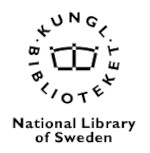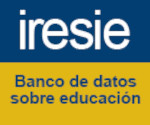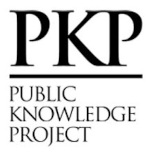Expanding the support network for bereaved children during the COVID-19 pandemic
DOI:
https://doi.org/10.5020/23590777.rs.v24i3.e14632Keywords:
childhood, pandemic, mourning, support network, interventionAbstract
This study aimed to evaluate the effects of a psychosocial intervention in expanding the perception of the affective and social support network of children who lost one or more loved ones due to contamination by COVID-19. It is a quasi-experimental study based on the mixed-methods approach and with a cross-sectional design. Eighteen children aged between eight and 11 (M = 10; SD = 0.82) were randomly divided into an experimental group (GEx) and a control group (CG). The intervention went over eight sessions and was conducted in the school context. The five-field map (MCC) was the technique used for data collection, and the data obtained in the pre-test (T1) and post-test (T2) measurements were evaluated through descriptive analyses and using the robust t-test for truncated means and dependent samples. The results showed that the intervention increased the strength of proximity in the friends' field and increased the frequency of people cited in Level 1 of the MCC. Furthermore, the means showed that the effect size in favor of GEx compared to GC was of moderate magnitude in the dimensions family (δt = 0.4; p = 0.26), institution (δt = 0.53; p = 0.07), friends (δt = 0.41; p = 0.07), community (δt = 0.33; p = 0.45) and total (δt = 0.64; p = 0.11). The limitations of the research are presented, as well as future studies, especially concerning psychosocial intervention programs aimed at children who experience losses in disaster situations.
Downloads
References
Algina, J., Keselman, H. J., & Penfield, R. D. (2005). An alternative to Cohen's standardized mean difference effect size: A robust parameter and confidence interval in the two independent groups case. Psychological Methods, 10(3), 317–328. https://doi.org/10.1037/1082-989X.10.3.317
Aoun, S. M., Breen, L. J., Rumbold, B., Christian, K. M., Same, A., & Abel, J. (2019). Matching response to need: What makes social networks fit for providing bereavement support? Plos One, 14(3), 1-17. https://doi.org/10.1371/journal.pone.0213367
Benca-Bachman, C. E., Najera, D. D., Whitfield, K. E., Taylor, J. L., Thorpe, R. J., Jr., & Palmer, R. H. C. (2020). Quality and quantity of social support show differential associations with stress and depression in African Americans. American Journal of Geriatric Psychiatry, 28(6), 597-605. https://doi.org/10.1016/j.jagp.2020.02.004
Brinich, P. M. (2023). Childhood bereavement amidst multiple pandemics. The Psychoanalytic Study of the Child, 76(1), 24-34. https://doi.org/10.1080/00797308.2022.2120335
Burrell, L. V., Mehlum, L., & Qin, P. (2021). Parental death by external causes during childhood and risk of psychiatric disorders in bereaved offspring. Child and Adolescent Mental Health, 27(2), 122-130. https://doi.org/10.1111/camh.12470
Caponi, S. (2020). COVID-19 no Brasil: Entre o negacionismo e a razão neoliberal. Estudos Avançados, 34(99), 209-224. https://doi.org/10.1590/s0103-4014.2020.3499.013
Cidade Aracy lidera lista de bairros de São Carlos com mais casos de Covid-19. (2020, 15 Dezembro). G1 São Carlos e Araraquara. https://g1.globo.com/sp/sao-carlos-regiao/noticia/2020/12/15/cidade-aracy-lidera-lista-de-bairros-de-sao-carlos-com-mais-casos-de-covid-19.ghtml
Cohen, J. (1988). Statistical power analysis for the behavioral sciences. Academic Press.
Dinis-Oliveira, R. J. (2020). COVID-19 research: Pandemic versus “paperdemic”, integrity, values and risks of the “speed science”. Forensic Sciences Research, 5(2), 174-187. https://doi.org/10.1080/20961790.2020.1767754
Döveling, K. (2017). Online emotion regulation in digitally mediated bereavement. Why age and kind of loss matter in grieving online. Journal of Broadcasting & Electronic Media, 61(1), 41–57. https://doi.org/10.1080/08838151.2016.1273926
Eisma, M. C., Boelen, P. A., & Lenferink, L. I. M. (2020). Prolonged grief disorder following the Coronavirus (COVID-19) pandemic. Psychiatry research, 288, 1-2. https://doi.org/10.1016/j.psychres.2020.113031
Figueiredo, H. B. M. (2022). As crianças, as professoras e seus pontos de vista sobre a morte e o luto em um contexto de pandemia. [Trabalho de Conclusão de Curso, Universidade Federal da Bahia]. Repositório Institucional da UFBA. https://repositorio.ufba.br/handle/ri/36050
Furukawa, L. Y. de A., Pessoa, A. S. G., & Komatsu, A. V. (2022). Lesbian intimate partner violence and perceived social support. Paidéia, 32, 1-8. https://doi.org/10.1590/1982-4327e3206
Hillis, S. D., Unwin, H. J. T., Chen, Y., Cluver, L., Sherr, L., Goldman, P. S., Ratmann, O., Donnelly, C. A., Bhatt, S., Villaveces, A., Butchart, A., Bachman, G., Rawlings, L., Green, P., Nelson, C. A., & Flaxman, S. (2021). Global minimum estimates of children affected by COVID-19-associated orphanhood and deaths of caregivers: A modelling study. The Lancet, 398(10298), 391-402. https://doi.org/10.1016/S0140-6736(21)01253-8
Juliano, M. C. C., & Yunes, M. A. M. (2014). Reflexões sobre rede de apoio social como mecanismo de proteção e promoção de resiliência. Ambiente & Sociedade, 17(3), 135-154. https://doi.org/10.1590/S1414-753X2014000300009
Klinger, E. F., Miranda, F. J., & Oliveira, D. P. (2021). Grief and fantasy in children aged 7 to 9 years: A case study. Research on Humanities and Social Sciences, 11(8), 1-12. https://doi.org/10.7176/RHSS/11-8-01
Kübler-Ross, E. (2017). Sobre a Morte e o Morrer. Martins Fontes. (Trabalho original publicado em 1981).
Łęgowska, E., & Krakowiak, P. (2018). Support in bereavement: Practical solutions for helping mourners children and youth. Journal of Psycho-Educational Sciences, 7(3), 67-72. https://perrjournal.com/index.php/perrjournal/article/view/233
Li, R., Pei, S., Chen, B., Song, Y., Zhang, T., Yang, W., & Shaman, J. (2020). Substantial undocumented infection facilitates the rapid dissemination of novel coronavirus (SARS-CoV-2). Science, 368(6490), 489-493. https://www.science.org/doi/pdf/10.1126/science.abb3221
Lopes, F. G., Lima, M. J. V., Arrais, R. H., & Amaral, N. D. (2021). A dor que não pode calar: Reflexões sobre o luto em tempos de Covid-19. Psicologia USP,32, 1-13. https://doi.org/10.1590/0103-6564e210112
Ludik, D., & Greeff, A. P. (2020). Exploring factors that helped adolescents adjust and continue with life after the death of a parent. OMEGA - Journal of Death and Dying, 84(4), 964-984. https://doi.org/10.1177/0030222820923905
Ludvigsson, J. F. (2020). Systematic review of COVID‐19 in children shows milder cases and a better prognosis than adults. Acta Paediatrica, 109(6), 1088–1095. https://doi.org/10.1111/apa.15270
Lytje, M. (2017). Voices that want to be heard: Using bereaved Danish students suggestions to update school bereavement response plans. Death Studies, 42(4), 254-267. https://doi.org/10.1080/07481187.2017.1346726
Lytje, M. (2018). Voices We Forget—Danish students experience of returning to school following parental bereavement. OMEGA—Journal of Death and Dying, 78(1), 24-42. https://doi.org/10.1177/0030222816679660
Lytje, M., Dyregrov, A., & Holiday, C. (2022). When young children grieve: Daycare children’s experiences when encountering illness and loss in parents. International Journal of Early Years Education, 31(1), 115-129. https://doi.org/10.1080/09669760.2022.2025581
Maiya, S., Dotterer, A. M., & Whiteman, S. D. (2021). Longitudinal changes in adolescents’ school bonding during the COVID‐19 pandemic: Individual, parenting, and family correlates. Journal of Research on Adolescence, 31(3), 808–819. https://doi.org/10.1111/jora.12653
Monti, L. L., & Sigolo, S. R. R. L. (2023). Estudo sobre violência intrafamiliar contra a criança: Conhecimentos e atitudes de professores da educação infantil. Educação, 48(1), 1–31. https://doi.org/10.5902/1984644466384
Muniyappa, R., & Gubbi, S. (2020). COVID-19 pandemic, coronaviruses, and diabetes mellitus. American Journal of Physiology, 318(5), 736-741. https://doi.org/10.1152/ajpendo.00124.2020
Nascimento, D. B., Neitzel, S., Rosa, E. M., Nascimento, C. R. R., & Dell’aglio, D. D. (2016). Mapa dos Cinco Campos, Genograma e Ecomapa no estudo da rede de apoio social e afetiva de crianças e adolescentes. In A. C. G. Dias, & E. M. Rosa (Orgs.), Metodologias de pesquisa e intervenção com crianças, adolescentes e jovens (pp. 65-99). EDUFES.
Oberg, L. P. (2018). O conceito de comunidade: Problematizações a partir da psicologia comunitária. Estudos e Pesquisas em Psicologia, 18(2), 709-728. http://pepsic.bvsalud.org/pdf/epp/v18n2/v18n2a18.pdf
Organização Mundial da Saúde. (2020). Folha informativa – COVID-19 (doença causada pelo novo coronavírus), Brasil. OMS.
Pandya, S. P. (2017). Spirituality for wellbeing of bereaved children in residential care: Insights for spiritually sensitive child-centred social work across country contexts. Child and Adolescent Social Work Journal, 35(2), 181–195. https://doi.org/10.1007/s10560-017-0509-1
Paul, S. (2019). Is death taboo for children? Developing death ambivalence as a theoretical framework to understand children’s relationship with death, dying and bereavement. Children & Society, 33(6), 556-571. https://doi.org/10.1111/chso.12352
Pessoa, A. S. G., Coimbra, R. M., Noltemeyer, A., & Bottrell, D. (2017). The applicability of hidden resilience in the lives of adolescents involved in drug trafficking. In D. D. Dell'Aglio, & S. H. Koller (Eds.), Vulnerable children and youth in Brazil: Innovative approaches from the psychology of social development (Cap. 16, pp. 247–260). Springer International Publishing.
Pessoa, A. S. G., Veloso, M. M. X., Guimarães, A. A., & Lordello, S. R. (2023). Programa ConViVEr: Ações extensionistas no enfrentamentos dos efeitos deletérios da pandemia do COVID-19. In A. S. G. Pessoa, & J. G. Zappe (Eds.), Ações extensionistas de universidades brasileiras: Navegando com pessoas, coletivos e instituições por justiça e promoção de direitos humanos (pp. 23-40). Editora UFSM.
Pizarro-Ruiz, J. P., & Ordóñez-Camblor, N. (2021). Effects of Covid-19 confinement on the mental health of children and adolescents in Spain. Scientific Reports, 11(11713), 1-10. https://doi.org/10.1038/s41598-021-91299-9
Rico, A., Muniz, H. K. M., & Pessoa, A. S. G. (2022). Violência intrafamiliar, infância e pandemia: Olhares prospectivos em cenários nefastos. Zero-a-Seis, 24(Esp.), 1599-1617. https://doi.org/10.5007/1980-4512.2022.e87226
Ridley, A., Revet, A., Raynaud, J.-P., Bui, E., & Suc, A. (2021). Description and evaluation of a French grief workshop for children and adolescents bereaved of a sibling or parent. BMC Palliative Care, 20(159), 1-10. https://doi.org/10.1186/s12904-021-00861-9
Rodway, C., Ibrahim, S., Tham, S.-G., Turnbull, P., Kapur, N., & Appleby, L. (2022). Bereavement and suicide bereavement as an antecedent of suicide in children and young people: Prevalence and characteristics. Journal of Affective Disorders, 300, 280-288. https://doi.org/10.1016/j.jad.2021.12.063
Rogers, K. (2022, August 26). Pandemic. Encyclopædia Britannica. https://www.britannica.com/science/pandemic
Sá, G. R., & Farias, H. P. S. (2022). Os Impactos na saúde mental infantil em idade escolar durante a pandemia COVID-19. In A. L. Guimarães (Ed.), Saúde e tecnologias educacionais: Dilemas e desafios de um futuro presente (Cap. 2, pp. 28-45). Epitaya. https://doi.org/10.47879/ed.ep.2021304p28
Sochos, A., & Aleem, S. (2022). Parental attachment style and young persons’ adjustment to bereavement. Child & Youth Care Forum, 51(1), 161-179. https://doi.org/10.1007/s10566-021-09621-5
Stroebe, M., & Schut, H. (2021). Bereavement in times of COVID-19: A review and theoretical framework. Omega, 82(3), 500-522. https://doi.org/10.1177/0030222820966928
Stylianou, P., & Zembylas, M. (2016). Dealing with the concepts of “grief” and “grieving” in the classroom: Children’s perceptions, emotions, and behavior. OMEGA - Journal of Death and Dying, 77(3), 240–266. https://doi.org/10.1177/0030222815626717
Tracewski, M., & Scarlett, K. (2022). Grief in children. Advances in Family Practice Nursing, 4(1), 203-216. https://doi.org/10.1016/j.yfpn.2021.12.012
Tso, I. F., & Park, S. (2020). Alarming levels of psychiatric symptoms and the role of loneliness during the COVID-19 epidemic: A case study of Hong Kong. Psychiatry Research, 293, 1-8. https://doi.org/10.1016/j.psychres.2020.113423
Weber, M., Alvariza, A., Kreicbergs, U., & Sveen, J. (2021). Adaptation of a grief and communication family support intervention for parentally bereaved families in Sweden. Death Studies, 45(7), 528-537. https://doi.org/10.1080/07481187.2019.1661883
Werneck, G. L., Bahia, L., Moreira, J. P. L., & Scheffer, M. (2021). Mortes evitáveis por COVID-19 no Brasil. Instituto Brasileiro de Defesa do Consumidor & Oxfam Brasil.
World Health Organization. (2020, March 11). WHO Director-General's opening remarks at the media briefing on COVID-19 - 11 March 2020. WHO. https://www.who.int/director-general/speeches/detail/who-director-general-s-opening-remarks-at-the-media-briefing-on-covid-19---11-march-2020
World Health Organization. (2021). Coronavirus disease (COVID-19) pandemic. WHO.
World Health Organization. (2021, December 23). Coronavirus disease (COVID-19): How is it transmitted? WHO.
Wray, A., Pickwell-Smith, B., Greenley, S., Pask, S., Bamidele, O., Wright, B., Murtagh, F., & Boland, J. W. (2022). Parental death: A systematic review of support experiences and needs of children and parent survivors. BMJ Supportive & Palliative Care, 1-12. http://doi.org/10.1136/spcare-2022-003793
Yuen, K. K. (1974). The two sample trimmed t for unequal population variances. Biometrika, 61(1), 165–170. https://doi.org/10.2307/2334299
Downloads
Published
How to Cite
Issue
Section
License
Copyright (c) 2024 Revista Subjetividades

This work is licensed under a Creative Commons Attribution-NonCommercial 4.0 International License.
Para autores: Cada manuscrito deverá ser acompanhado de uma “Carta de submissão” assinada, onde os autores deverão declarar que o trabalho é original e inédito, se responsabilizarão pelos aspectos éticos do trabalho, assim como por sua autoria, assegurando que o material não está tramitando ou foi enviado a outro periódico ou qualquer outro tipo de publicação.
Quando da aprovação do texto, os autores mantêm os direitos autorais do trabalho e concedem à Revista Subjetividades o direito de primeira publicação do trabalho sob uma licença Creative Commons de Atribuição (CC-BY), a qual permite que o trabalho seja compartilhado e adaptado com o reconhecimento da autoria e publicação inicial na Revista Subjetividades.
Os autores têm a possibilidade de firmar acordos contratuais adicionais e separados para a distribuição não exclusiva da versão publicada na Revista Subjetividades (por exemplo, publicá-la em um repositório institucional ou publicá-la em um livro), com o reconhecimento de sua publicação inicial na Revista Subjetividades.
Os autores concedem, ainda, à Revista Subjetividades uma licença não exclusiva para usar o trabalho da seguinte maneira: (1) vender e/ou distribuir o trabalho em cópias impressas ou em formato eletrônico; (2) distribuir partes ou o trabalho como um todo com o objetivo de promover a revista por meio da internet e outras mídias digitais e; (3) gravar e reproduzir o trabalho em qualquer formato, incluindo mídia digital.
Para leitores: Todo o conteúdo da Revista Subjetividades está registrado sob uma licença Creative Commons Atribuição (CC-BY) que permite compartilhar (copiar e redistribuir o material em qualquer suporte ou formato) e adaptar (remixar, transformar e criar a partir do material para qualquer fim) seu conteúdo, desde que seja reconhecida a autoria do trabalho e que esse foi originalmente publicado na Revista Subjetividades.





















